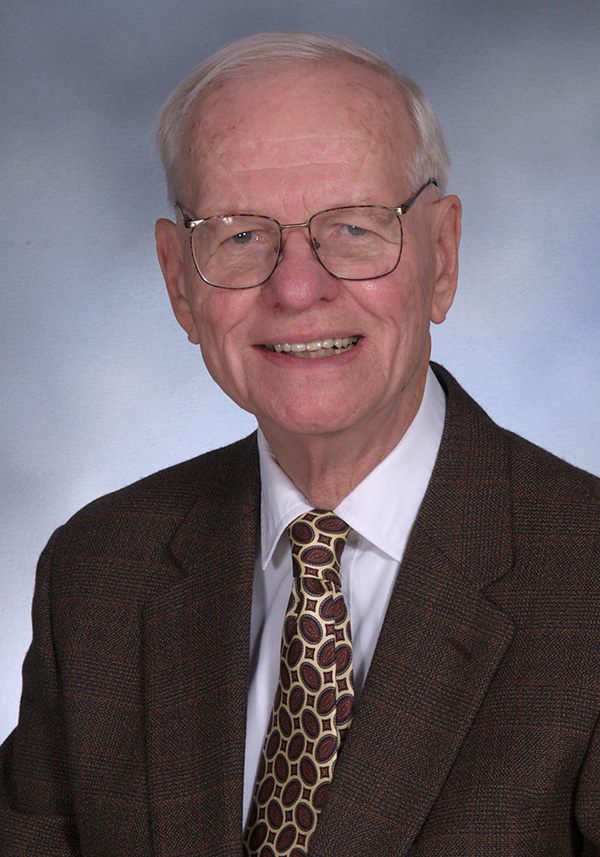Gil Stoewsand, who helped to save N.Y. wine trade, dies
By Blaine Friedlander

Gilbert Stoewsand, a Cornell food scientist who helped to rescue New York’s fledgling wine industry in the early 1970s by debunking shoddy science and malicious rumors that attributed health risks to drinking wine made from hybrid grapes, died July 4 in Geneva, New York. He was 83.
In what may seem absurd to today’s enologists and wine drinkers, French and German scientists in the early 1960s attributed physiological deformities in animals to drinking wine made from hybrid grapes.
Hans Breider, director of the Bavarian State Institute for Wine, Fruit and Horticulture in Germany, purportedly verified French research in 1965 that showed liver damage to chickens when hybrid wines were fed to them, according to the Cornell University Press book, “Wines of Eastern North America,” by Hudson Cattell. By 1967, Breider reported that wines made from hybrid grapes fed to chickens produced malformed legs and feathers.
To examine the French and German scientific work, Willard Robinson, chair of Cornell’s food science department at the New York State Experiment Station in Geneva, hired toxicologist Stoewsand as an assistant professor in 1967. His first mission was to investigate the veracity of the charges against hybrid grapes.
Aggravating the hybrid grape controversy, newspaper columnist Jack Anderson published a column in The Washington Post on Jan. 13, 1971, headlined “Wines Cause Deformities,” that ran in 600 newspapers, according to Cattell’s book.
Anderson wrote: “The French hybrid wines, like those produced by many New York vineyards, cause such grotesque birth defects in chicks as crippled feet, ‘vulture beak,’ and ugly spine abnormalities. The hybrids, intended to eliminate the unpleasant ‘foxy’ taste from New York wines without sacrificing the hardiness of American wines, are increasing in popularity. The hens that hatched the deformed chicks were fed French hybrid juice and wine in laboratories by Dr. Hans Breider.”
Instantly, wine retailers removed New York wines from their store shelves, according to Cattell.
Stoewsand and Robinson reported at the American Society of Enologists meeting in 1970 that Breider’s chickens suffered from chronic and acute nutritional deficiencies due to their poor diet, not from being fed juice or wines from hybrid grapes. Cornell issued a scientific bulletin in January 1971.
Wine produced from hybrid grapes “when fed to chicks, produced no significant physiologic or anatomic deviations due to grape species,” Stoewsand wrote. “The major effect in growing chicks drinking wines or juices from any grape is related to the interference with normal water and adequate balanced diet intake.”
Concurrently with the Cornell research invalidating the scientific fraud, the U.S. Food and Drug Administration issued a statement saying there was no cause for alarm, and The Washington Post subsequently published a story on Stoewsand’s research.
In 1972, Stoewsand traveled on a World Health Organization fellowship to Switzerland, where he noted that scientists did not support Breider’s scientific work. Another German scientist explained Breider’s background to Stoewsand.
“One evening after sharing a couple of bottles of wonderful wines after dinner, he told us the story of Hans Breider,” wrote Stoewsand, in an unpublished autobiography. “Breider was chief viticulturist during the 30s under Hitler’s regime. Hitler was very proud of the German wine industry … [But] Breider fell out with Hitler for some unknown reason and [was] thrown in jail for a number of years.”
Breider’s replacement created hybrid grape varieties for wines and once Breider left prison, bitter and jealous, he discredited such hybrids as toxic.
Prudence and scientific sense won out: Robinson, Cornell’s food science chair, said refuting the toxicity claims was one of the Geneva’s Experiment Station’s biggest contributions to the state’s wine industry.
Gilbert Saari Stoewsand was born on Oct. 20, 1932 and raised in Chicago. He earned his bachelor’s degree in 1954 and master’s degree in 1958 in animal science from the University of California, Davis. He earned a doctorate in 1964 in animal nutrition and biochemistry from Cornell. Stoewsand became an associate professor of toxicology at Cornell in 1973, a professor in 1979 and an emeritus professor in 1996.
Stoewsand is survived by his wife, Ellen, and two daughters.
The DeVaney-Bennett Funeral Home in Geneva has arrangements.
Media Contact
Get Cornell news delivered right to your inbox.
Subscribe